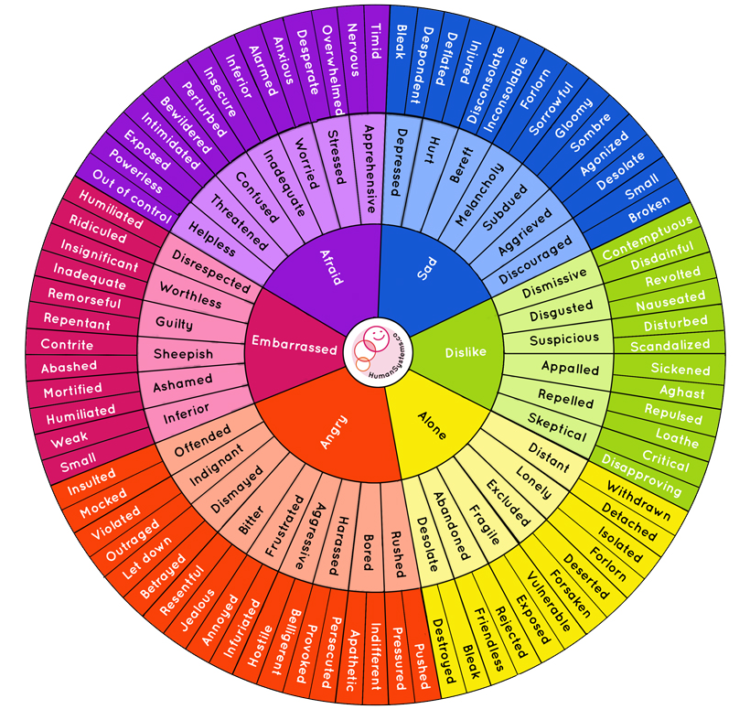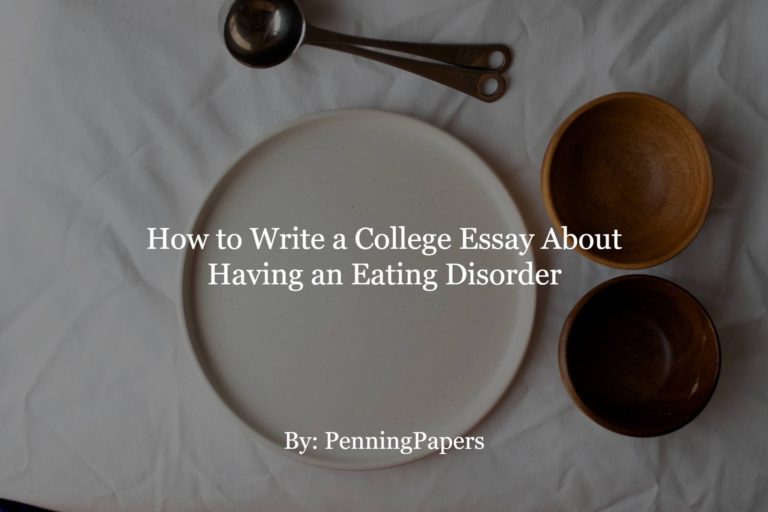If you’re thinking about writing your college essay about having an eating disorder, you probably asked yourself if that’s too cringy.
Here’s the short answer…
Yes, you can write your college essay about having an eating disorder. In fact, we’ve had multiple students write about both binge eating and anorexia successfully. These students were accepted into perfectly great T-25 schools.
Controversial topics like eating disorders can be risky. But, where most students are mistaken is in thinking they can find a risk-free topic. Most if not all topics carry some risk in them. If you judge any topic at face value, they are to some degree going to carry a level of “cringe.”
- College essay about volunteering: they might think we look down on the disadvantaged
- College essay about running a chess club: too cliche
- College essay about sports: even more cliche
- College essay about family: not profound or impressive enough
- College essay about a hobby: too diverted from your major
Notice that these criticisms don’t actually hold water. They “could” be true; but, the quality of the essay is really in actually looking at the essay itself.
A successful college essay about having an eating disorder consists of 3 things: how you overcame your eating disorder, the growth you’ve made since then, and how said growth can be applied to your college experience.
In fact, we’ve actually created guides on how to write about unconventional, cliche, or unusual topics below!
Guides by PenningPapers on how to write your college essay about…
- Trading and Stocks
- Music
- Travel
- Shyness
- ADHD
- KPop
- Being Asian
- Divorced Parents
- Video Games
- Depression
- Sports
- Anime
- Coming Out as LGBT
- Death
- Diversity as a White Male
Long story short: you can write your college essay about practically anything, including your eating disorder. Don’t change the topic. Change how you write it.
Let’s cover how to do exactly that below!
Table of Contents
- How to Write Your College Essay About Your Eating Disorder (ED)
- Example College Essay About Having an Eating Disorder.
Professional College Application Help.
Contact us. We'll get to you within 24 hours.
How to Write Your College Essay About Your Eating Disorder (ED)

1. Be Articulate About Your Emotions.

Most students don’t know how to explain what they’re really feeling. Often, eating disorders come with a whole host of emotions. But, feeling them and articulating them are completely different things.
For instance, many feel frustrated. Others feel unheard.
But, there are many nuances that exist within these emotions. Remember that it’s the nuanced emotions that often carry the best content.
Here’s an example.
You may notice that you feel a lot of shame as someone with an eating disorder. But, you also want to “just fix it” by using positive affirmations. You try to be happy and content with yourself by complimenting yourself. That way, you don’t need to destroy your body to feel confident. But, pride is not the opposite of shame. It’s the source!
This nuanced approach to emotions can help admissions officers see the complexity of your character. It shows you’re not one-dimensional.
Don’t know how to explain these emotions? No problem! Refer to this emotion wheel to better help you!

2. Show How You’ve Improved and Grown.

It’s not about where you start in life. It’s about the work you put in to develop as a person.
Your readers understand their applicants come from all walks of life. Some people come from troubled households with insecure financial situations. Others suffered years of bullying with lasting impacts. It’s rather common for students to have struggled through some level of mental health struggles.
And, yes. That includes eating disorders.
But, harken back to our previous statement: “It’s not about where you start in life.”
The key to writing a solid college essay about having an eating disorder is to show your development and growth.
This doesn’t mean you need to be perfectly stable in life with the best grades, wonderful relationships, and wisdom beyond your years. You’re human; and, humans seldom make progress that fast.
Instead, consider writing about both the hard and soft skills that you’ve gained.
Let’s say you regained a positive relationship with food. That’s a hard skill. A subtler yet equally effective topic would be the confidence you’ve gained —especially in overcoming your self-defeating beliefs that you can change. This is your soft skill.
Soft skills show a deeper level of analysis. People who overcome eating disorders are often seen as “fixing” the “weird eating stuff” like binge eating or purging. But, there’s a lot —yes, a lot— of nuanced details outsiders miss. We don’t hear about how overcoming food addiction means letting go of the last light of our lives. Or, the absolutely profound reality shattering that occurs when we discover the depths of self-hate behind our self-starvation.
These are crucial for writing a profound college essay that isn’t banal.
Speaking of writing about the soft skills you gained, let’s get to the next point: thinking deeply about the simple things.
3. Think Deeply About the Simple Things.

There’s a common misconception: there’s no value in the simple things because they’re inconspicuous.
But, the simple details carry a lot of value. Look at your college essay about having an eating disorder. Notice your experience has random details that often don’t seem all that important.
It’s often these exact small details that carry subtle nuances, themes, motifs, and lessons to share with admissions officers.
Okay, here’s an example.
“I never quite liked my uncle.
Just kidding. I loved him and my family dearly. After all, he and everyone means well. Our family came from a history of Evangelic Christain do-gooders who loved God —and their trucks. In short, we were a hillbilly family, I suppose. Yet, there’s something about how do-good that can be quite suffocating.
It sounds absoutely bizzare, right? I know: it sounds bizarre even to myself as I write this. Nonetheless, I don’t wish to pen this with the intention of being inconsiderate of my family’s overwhelming generosity. Rather, I wish to articulate a fatal flaw in a problem that I myself have faced for the longest time.
Eating Disorders.
“Ahh, yeh; well, y’know yer mot’er should’ve gibben yeh a, uhh some extra of her pumpkin pie!” My uncle patted me. “I know: she tells me you ain’t eaten much or nothin’… and, it’s got me worried hmm?”
I never quite liked how he comforted me, though. He always patted me on the back super hard in that way where it leaves a sharp sting on the surface of my skin for a while and I was sure —if I had eyes at the back of my head— I would see red forming on my back with an imprint visible enough for a fortune teller to predict his future.
“Hmm, let’s see; your relationship with your daughter is strained because she understands you’re concerned about her. Nonetheless, she feels her eating disorder is aired out for everyone to see. No, wait. That’s just a mole.”
Exceprt From an Example College Essay About Having an Eating Disorder. PenningPapers
In this excerpt, the applicant has demonstrated strong writing mastery and clever dark humor to visibly demonstrate her linguistic prowess. However, she also takes special care in explaining how her uncle pats her hard on the back.
This is a common patriarchal method seen amongst fathers, uncles, and other male relatives. And, it’s well-meaning; yet, it hints at an underlying difficulty that older men have in comforting their children.
And it’s not all that uncommon! Men have, for the history of humanity, seldom been taught emotional intelligence. In this case, the applicant masterfully depicts her conflictedness with her uncle’s comfort. She understands the sentiment, yet feels uncomfortable with having her dirty laundry aired out. And, she hints at her uncle’s hard-hitting back pats as too forceful for an otherwise necessary gentle compassion.
In short, think about the simple things! In this case, small things like back pats that feel a bit too comfortable are a great place to start! Maybe in your case, you had a bad experience passing by the mirror in your house. Or, you feel emotionally conflicted with how much your pet cat loves you and your body. It’s up to you!
4. Be Careful: This Isn’t the Time to Trauma Dump.

Note: this is not to say that you can’t cover details pertaining to your difficult situation. There are times when your story requires context to understand the full scope of the story.
Trauma dumping is characterized by choosingtherapy.com as…
“… an unhealthy behavior that tends to involve long, uninterrupted venting sessions about one or more stressful, painful, or traumatic experiences a person has had… In the short term, this kind of excessive venting can provide relief to the person sharing. However, eventually the effects of this behavior prove to be negative for everyone involved, including the person posting and those reading.”
Choosing Therapy.com on Trauma Dumping
In the context of the college admissions process, most students will trauma dump by explaining too much about their traumatic issues. They dedicate far too many words in their already meager word count to the trauma itself. Then, there’s no space for inference or analysis.
Additionally, the limited words seldom do the experience justice.
In short: if you’re writing a college application essay that has traumatic or triggering events, don’t get too caught up on the traumatic event. Instead, use it as context to explain why you’re a suitable candidate for the university.
Additionally, if you do dedicate too many words to trauma dumping in your essay, you may risk showing red flags to admissions officers.
College admissions officers are not discriminatory based on histories; and, they’re generally understanding of struggles such as mental health disorders. However, it’s when these details pose a serious risk of danger to the campus that they may be less inclined to accept you.
So, if you’re trying to write your college essay about having an eating disorder, try to reduce the word count on all traumatic events. Keep it smushed to as few words as possible without removing any of the necessary context.
This way, you’ll spare much-needed word count as well as do your story justice without sugarcoating details vital to your personal story.
We know this can be hard. So, that brings us to the next point.
5. Get a Second Pair of Eyes (Especially for Difficult Topics.)

Let’s face it: writing your college essay about your eating disorder is not going to be a simple task.
However, it’s the difficult topics that often contain the most nuanced themes and interesting characteristics for admissions officers to draw from! Think of it as a high-effort high-reward strategy.
That’s why we don’t encourage students to give up on topics that seem hard to write. We still recommend students try difficult topics that normally won’t be easy to tackle since the hard ones often have the best results.
Now, if you’re still struggling to write your college essay about having an eating disorder, we would heavily recommend getting a second pair of eyes to look at it. This can be from a teacher, private instructor, college counselor, or private college admissions consultant.
But, here’s the catch: they need to have the expertise to navigate difficult topics like eating disorders, and they need the college admissions experience to consult on writing essays on these topics.
There are few college counselors who know how to navigate the admissions process meaningfully, let alone those who can tackle hard topics in essays without raising red flags. A good consultant would be able to help you write about hard topics in a creative way that shows your best talents whilst avoiding negative opinions.
That’s why we recommend working with us. If you need help writing your college essay about your eating disorder, consider scheduling a free consultation with us. We’ll get back to you within 24 hours. And, we’ve helped students writing their college essays about controversial topics get accepted into some of the best schools in the nation including NYU, Cornell, UPenn, Yale, Stanford, USC, UCB, and more!
Example College Essay About Having an Eating Disorder.

The following essay was written in response to the Common App essay prompt 2. You can find the prompt below.
“The lessons we take from obstacles we encounter can be fundamental to later success. Recount a time when you faced a challenge, setback, or failure. How did it affect you, and what did you learn from the experience?”
Common App Prompt 2 (2023-24)
Below is the essay itself. It was sent by one of our clients who was accepted into Vanderbilt University and had undergone multiple revisions through our college essay editing services.
If you’re interested in said services, consider scheduling a free consultation with us to get a custom quote!
“Possessed by an affinity for fancy lights and pretty colors, I didn’t find it too hard to make my way into one of many sanctimonious gentrified LV stores lining the San Fransisco walkway; being a middle-class… human being, for lack of a derogatory “wealthy people” word, it didn’t take long for me to get not only ignored by the sales associate but shot nasty looks —yes, nasty!— for asking for help with a pair of white shoes.
It was one of those, “Oh, fine… I suppose I’m paid “enough” to really help you; but, don’t get your hopes up, your kind don’t belong in a store like this” kinds-of-looks that, as an aspiring entrepreneur and consumer-psych nerd, was really easy to see through: if you make lower-income customers feel insignificant, they’ll overcompensate by buying more expensive items to “prove you wrong.” Just, y’know, I can’t really explain all that in a short interaction; I just wanted to know about the white shoes speckled in pretty colors, to which the associate rolled her eyes, to which I retorted in my head, “What’re you mad at me for? I’m in the same boat as you —taking on a fake ivory-tower job in order to pay off the debt needed to afford the education of a “real” ivory tower job!
But, there’s actually something subtler than the wealth discrimination that so constitutes San Fransisco’s charm.
Beauty.
Specifically, a particular kind of beauty. Spoiler alert: it’s skinny beauty. Oh, I know, we’re more open to all forms of beauty… right? We empower all bodies, indiscriminate of what others think of us!
But, like the great Tywin Lannister once said: “Yeah, that’s what you want other people to think of you!
And, I’ll be frank: I cared a lot about what other people thought of me. As someone who followed high fashion quite closely, I’ve seen the specter of heroin chic —geez, thanks CK and YSL!— loom over the fashion and beauty industry like a pale, white, emaciated ghost. And, an emaciated ghost I became! For as long as I could remember, I tried to emulate the look: slim leather jacket, skinny jeans, tight clothes that outlined my slim figure and jawline. The whole 9 yards.
The less I accepted myself, the more the fashion industry accepted me.
Suffice it to say, my relationship with food was not exactly the best.
By the time I was actually diagnosed, I thought a lot about my relationship with my body, beauty, and food. One of the things people don’t talk about with eating disorders is the negotiations. Maybe I can still be healthy yet still look slim and pretty. Or, maybe I can still be ‘x’ whilst ‘y’. Insert whatsoever variable fits, and it probably suits the internal eating disorder experience.
For me, I thought I could be “body positive” whilst also accepting modern fashion trends. Maybe they could exist in some hypothetically positive “agree-to-disagree” bubble.
Wrong.
After much rumination, I’ve come to accept this one conclusion: modern beauty expectations are unhealthy. Period. Full stop. It’s either follow modern beauty standards unhealthily or be healthy whilst rejecting modern beauty standards. I was greedy to believe I could satisfy unrealistic beauty expectations whilst being healthy. That prevented me from recovering from my eating disorder. I couldn’t let go of “fitting the standard” to be healthy.
So, I’ve come to accept that I can’t satisfy everyone. I chose my health. Goodbye beauty standards. Nice knowing you… sorta? I have a bit of a chub now and am often adorned in hoodies and dad caps.
But, here’s the thing. I’m okay with that! I’m okay with the fact that I can’t satisfy everyone. I won’t fit modern beauty standards without sacrificing my health, and vice versa. And, that’s okay.
That’s the beauty of it. I don’t need to satisfy everyone (or, anyone!) I’m okay. It’s all okay.”
Successful College Essay About Having an Eating Disorder (Common App Essay Prompt ) —Vanderbilt University, PenningPapers
If you’re still struggling to write a solid college essay about your eating disorder, don’t worry! It’s a hard topic; and, it takes time and effort to write. However, you don’t have to tackle difficult topics like this alone. We highly recommend getting help from us for professional college admissions essay consulting and editing by scheduling a free consultation. Our college advisors and consultants have had many years of experience getting students like you accepted into prestigious institutions like that of (recently) Brown, Yale, Dartmouth, Cornell, U Mich, GT, UPenn, Duke, and many more!

